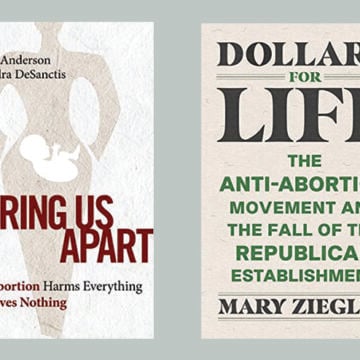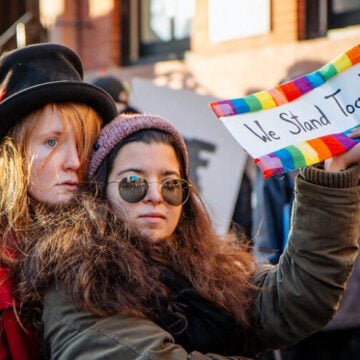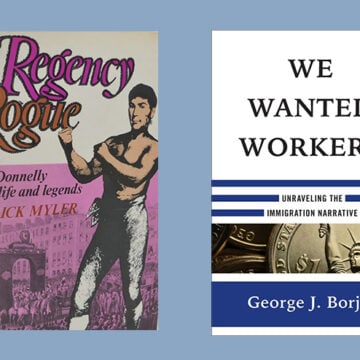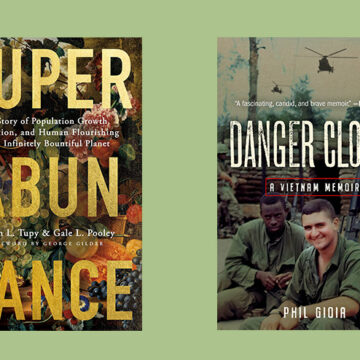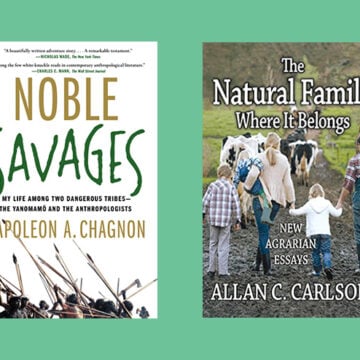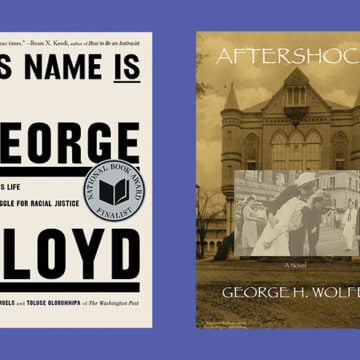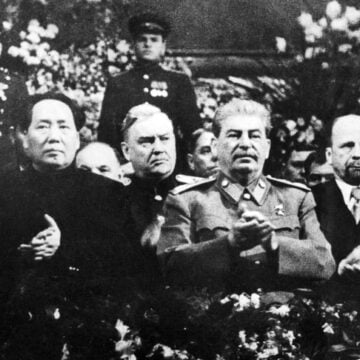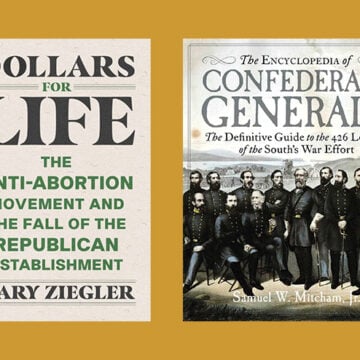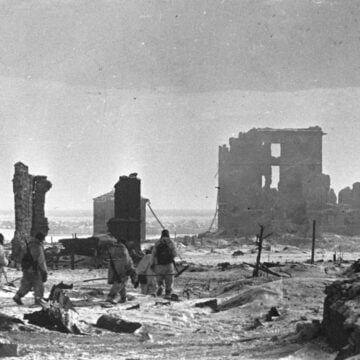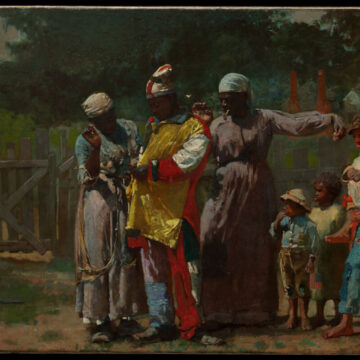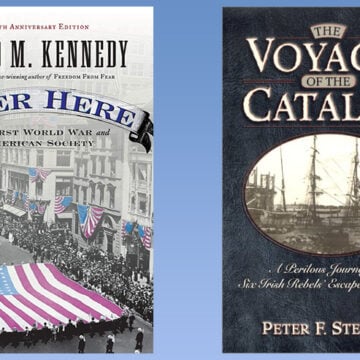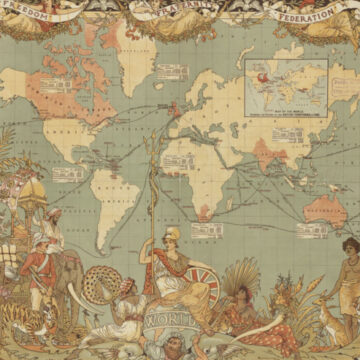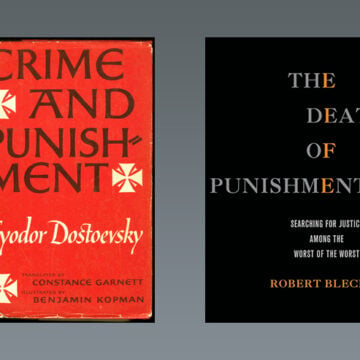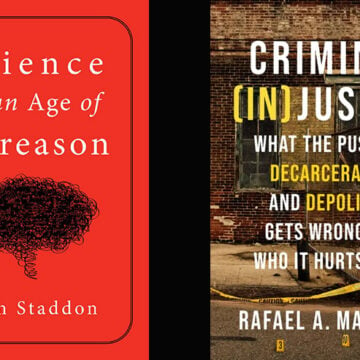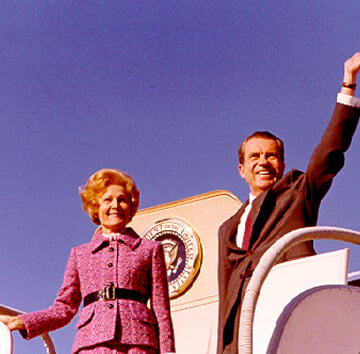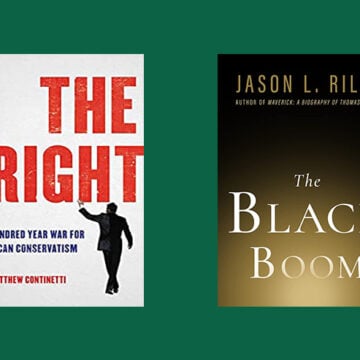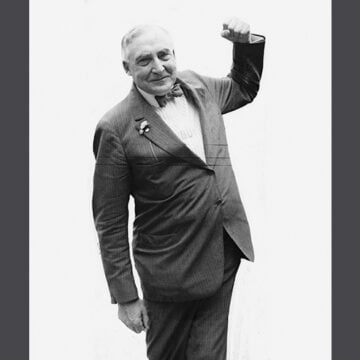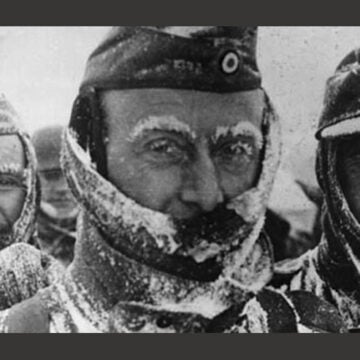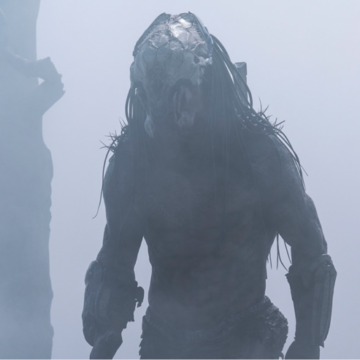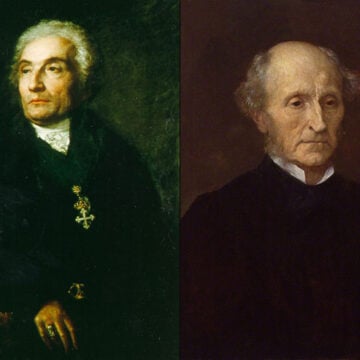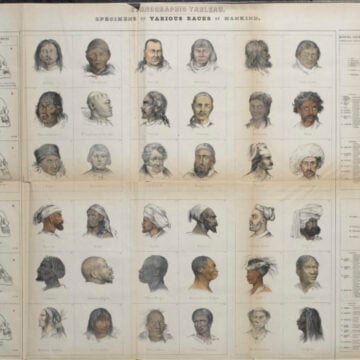The book Partisans is a product of contemporary political discourse—made up of cut-and-paste, second- and third-hand source-filled rants—that fails to pass for serious scholarship.
Category: Reviews
Invasion of the World Savers
There is still time left to rescue the past, present, and future from William MacAskill’s ideological future savers.
Books in Brief: September 2023
Short reviews of Tearing Us Apart, by Ryan T. Anderson and Alexandra DeSanctis, and Dollars for Life, by Mary Ziegler.
A Spark to Start a Wildfire
Sound of Freedom is a beautifully crafted and passionately humane film about the darkest underbelly of contemporary life: the trafficking and sexual abuse of helpless children.
Freedom’s Penalties
In Obedience Is Freedom, Jacob Phillips illustrates how too much freedom can often mean unhappiness. Men are not made to endlessly self-create.
Do Not Spare the Rod, or the Iron Bars
The Myth of Overpunishment is a muscular response to the activists and politicians who cry over the supposedly too-high incarceration rate of the American justice system.
The Modern Myth of a Lockean Founding
America’s Philosopher posits that Americans in the 20th century weaponized John Locke for their own ideological ends and read Locke into the American founding. This has given Locke an outsized importance as a means to an ideological end.
The Imperial Imperative
In the Shadow of the Gods chronicles the charismatic and influential movers of history, known as emperors.
What We Are Reading: August 2023
Immigration proponents make obvious contradictory claims. They repeat endlessly that recent immigrants are integrating just as fully as earlier immigrants did. Yet they also want to turn the idea that “America is a melting pot” into a prohibited microaggression. If it really is happening, why is it a moral crime to mention it? They lose...
Books in Brief: August 2023
Short reviews of Danger Close! A Vietnam Memoir, by Phil Gioia, and Superabundance: The Story of Population Growth, Innovation, and Human Flourishing on an Infinitely Bountiful Planet, by Marian L. Tupy and Gale L. Pooley.
Longing for the Sacred
Though his portrayal of the Catholic saint is superficial at best, Padre Pio director Abel Ferrara's at least accomplish something, accidentally, by leading the film's star onto a redemptive path.
To Be Or Not to Be Western Civilization
Shakespeare and the Idea of Western Civilization, by R.V. Young, is an invaluable defense of Shakespeare against modern anti-Western critics.
What We Are Reading: June-July 2023
Short reviews of Noble Savages, by Napoleon Chagnon, and The Natural Family Where It Belongs, by Allan C. Carlson.
Books in Brief: June-July 2023
Short reviews of His Name Is George Floyd, by Robert Samuels and Toluse Olorunnipa, and Aftershock, by George H. Wolfe.
Empire’s Bloody End
In A Continent Erupts Ronald Spector analyzes the complex conflicts of East and Southeast Asia in the 10 years after the end of World War II.
McCarthy’s Missing Man
The Passenger reflects Cormac McCarthy's longtime internal debate over the meaning, if any, and purpose, if any, of human existence.
Books in Brief: May 2023
Short reviews of Dollars for Life, by Mary Ziegler, and The Encyclopedia of Confederate Generals, by Samuel W. Mitcham, Jr.
World War II, Served Slightly Woke
In Blood and Ruins: The Last Imperial War, Richard Overy gives a comprehensive analysis of World War II, despite a tiresome woke influence on the topic of imperialism.
What We Are Reading: May 2023
Short reviews of Pevsner's Architectural Glossary, by Nikolaus Pevsner, and Memoirs of Prince Alexy Haimatoff, by Thomas Jefferson Hogg.
A Colonial History of African-Americans
In African Founders, David Hackett Fischer asserts that the traditions of liberty, equality, and the rule of law often transcended the evils of slavery in early America and were embraced, with impressive results, by masters and slaves alike.
Advanced Ideological Disease in Academe
It's Not Free Speech is a poorly argued attempt to defend the so-called expertise of woke academics.
The End of Liberalism Nears
In his latest book, Francis Fukuyama sees liberalism under threat from extremists on both the populist right and the identitarian left.
What We Are Reading: April 2023
Short reviews of Over Here: The First World War and American Society, by David Kennedy, and The Voyage of the Catalpa, by Peter Stevens.
Books in Brief: April 2023
Short reviews of Interventions 2020, by Michel Houellebecq, and The Twilight Struggle: What the Cold War Teaches Us about Great Power Rivalry Today, by Hal Brands.
The Cause of Us All
Mark Winchell explores the myth of Abraham Lincoln's "deification" in American culture, among other Southern themes.
Beating a Dead Imperial Horse
In Legacy of Violence, Caroline Elkins projects her skewed view of 1950s Kenya onto the entire history of the British Empire.
Soldiers of Burden
Outsourcing Duty tackles the issues that arise in countries where a large majority of citizens avoid military service and isolate themselves from the risks and moral responsibilities that soldiers face.
Zero Plus Ten
Harald Jähner's Aftermath offers a panoramic view of the process of recovery for Germans in all occupation zones during the first 10 years after World War II.
Stan Evans: Unsung Hero of the Right
Despite his significant contributions to the post-WWII right in America, M. Stanton Evans is not as well-known as his many accomplishments warrant. Steven Hayward's new biography sets the record straight.
What We Are Reading: March 2023
Brief reviews of Crime and Punishment, by Fyodor Dostoevsky, and The Death of Punishment, by Robert Blecker.
Books in Brief: March 2023
Brief reviews of Science in an Age of Unreason, by John Staddon, and Criminal (In)Justice, by Rafael Mangual.
The Boomers’ Bogus View of World War II
Using history, memoir, and popular culture as sources, Elizabeth Samet highlights the contrast between the concrete realities of World War II and its subsequent transfiguration in American memory since the 1990s.
Four Women Against the Oxford Dons
In the 1930s and '40s, four female students at Oxford challenged the dons with an intellectually vigorous return to Aristotle and classical and medieval approaches to a philosophy of human action.
What We Are Reading: February 2023
Short reviews of Commentaries on the Gallic War, by Julius Caesar, and What Is Marriage? Man and Woman: A Defense, by Sherif Girgis, Ryan T. Anderson, and Robert P. George.
The Mathematics Behind the Man
Ananyo Bhattacharya’s biography of the genius mathematician John von Neumann is rich in details about the man's work but lacking in characterizations of the man himself.
Books in Brief: February 2023
Brief reviews of Western Self-Contempt: Oikophobia in the Decline of Civilizations, by Benedict Beckeld, and The Collapse of Manifest Destiny, 1845–1872, by Daniel J. Burge.
The Age of Nixon
Russell Kirk, a venerated conservative man of letters, weighs in on Nixon’s response to the media-incited campaign against him, from the July 1990 issue of Chronicles.
Clap & Trap
John Lukacs dissects the self-important claim that after the fall of the Soviet Union, world history would culminate in the inevitable acceptance of the American “liberal democratic” model worldwide.
The Costs of Culture
M. E. Bradford illuminates the problem of a government agency, the NEH, that claims to promote “culture” but has instead become a source of handouts to well-connected educational institutions.
Ireland’s Arc to a Post-Christian Nation
Crawford Gribben has produced a fascinating history of Christian Ireland from its promising beginnings, in the age following the fall of the Roman Empire, to its dramatic decline in recent decades.
What We Are Reading: December 2022
Short reviews of Feminism & Freedom, by Michael Levin, and the Sword of Honor trilogy, by Evelyn Waugh.
Books in Brief: December 2022
Short reviews of The Right: The Hundred-Year War for American Conservatism, by Matthew Continetti, and The Black Boom, by Jason Riley.
Unsmearing Warren G. Harding
In The Jazz Age President, Ryan Walters sets the record straight about the often-misrepresented Warren G. Harding, who, in his brief time as president, led the country out of a crisis.
The Wehrmacht in Their Own Words
By allowing the German soldiers to speak, historian David Harrisville helps us to see World War II through their eyes, almost sympathetically. Many were devoted Christians who saw the war as a struggle against "godless" and "inhumane" Soviets.
What We Are Reading: November 2022
Short reviews of The Fox in the Attic, by Richard Hughes, and Boke Named the Gouernour, by Sir Thomas Elyot.
Reading Your Way Around the World
In Around the World in 80 Books, David Damrosch makes a literary journey that loosely follows Jules Verne's classic geographical adventure of similar title.
Books in Brief: November 2022
Short reviews of Free: A Child and a History at the End of History, by Lea Ypi, and The Rise and Fall of the Neoliberal Order: America and the World in the Free-Market Era, by Gary Gerstle.
Of Demons and Ghosts
The 2022 film Prey is a predictable woke prequel to the 1987 film Predator. A better choice for adventure is the 1935 classic, The Ghost Goes West, starring Robert Donat.
Of Opposite Minds: Maistre and Mill
Joseph de Maistre, a brilliant wordsmith, was an elegant defender of the old order, while John Stuart Mill, in his plodding prose, helped to usher in welfare democracy and the modern administrative state.
Race Erased
Racism, Not Race starts from the assumption that biological races do not exist, rants leftward from there, and finishes by slapping the white-supremacist label on Trump voters.


